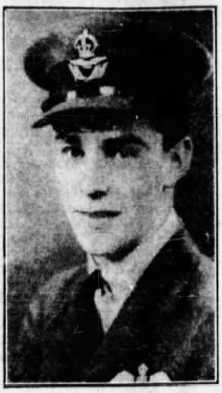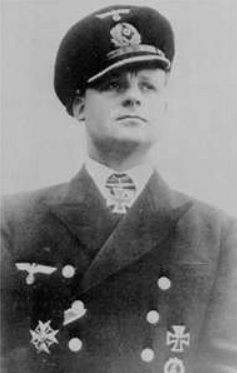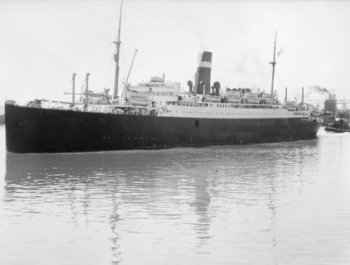3 September 1939
It was the Labour Day weekend, the last long weekend of the summer. But, instead of sleeping late or basking in the sun, Canadians were huddled around their radios, anxiously listening to news coming out of London. Shortly after 6am in Ottawa (11am London time) on Sunday, 3 September, 1939, Neville Chamberlain, the British Prime Minister, announced over the wireless that Great Britain was at war with Germany. The ultimatum that the British ambassador had delivered to the Reich’s Foreign Ministry in response to the German invasion of Poland had gone unanswered.
The news was not unexpected. For weeks the martial drumbeat had grown louder. With Germany and the Soviet Union signing a non-aggression pact in mid-August, there was nothing stopping the Nazis from attacking Poland. With a swift victory almost assured over the antiquated Polish army, Germany no longer risked a two-front war should Britain and France honour their pledge to support Poland. At the beginning of September, German forces entered Poland.
Unlike twenty-five years earlier, there were no shouts of joy and applause at the British declaration of war. Ottawa took the news somberly. Later that Sabbath morning, families went to church to pray for divine guidance for their leaders and protection for their families and friends in the perilous times ahead. In the early afternoon, families again gathered around the radios, this time to hear the King say: “I now call my people at home and my peoples across the seas who will make our cause their own. I ask them to stand calm and firm and united in this time of trial.” The Citizen reported that people wept hearing him speak. “It was the message of a beloved sovereign to a people with whom he and his Queen had mingled freely but a few short months ago [the 1939 Royal Visit] …It was as if His Majesty in truth had crossed the threshold of every Canadian home to bid them his good cheer in the extremity of the hour.”
Prime Minister Mackenzie King was awoken early with the news of Britain’s declaration of war. He hurried from Kingsmere, his country estate in the Gatineau Hills, to Ottawa for a 10 o’clock emergency Cabinet meeting in the Privy Council Chamber in the East Block on Parliament Hill. Meanwhile, instead of the usual Sunday quiet, Sparks Street buzzed with excitement as hundreds of anxious people milled about in front of the Citizen’s office waiting for the latest news bulletins to be posted. Extra police were laid on to control the crowd. Over that long weekend, Ottawa troops were mobilized with gunners moving into Lansdowne Park. Guards appeared on all public utilities and local dairy plants to prevent possible sabotage. Placards went up across the city saying men of military age were needed. The Cameron Highlanders announced that men should report to the Cartier Drill Hall at 9am on the Monday morning. The drum and bugle band of the Royal Canadian Army Service Corps marched through Ottawa streets, with placards saying “Recruits wanted for the RCASC, mechanics, tinsmiths, coppersmiths, clerks, turners.”
When Mackenzie King left the Cabinet meeting around 2pm Sunday afternoon, the large crowd waiting for him outside the East Block cheered. The Prime Minister doffed his hat in acknowledgement and then paused for an official photograph to be taken by the Government Motion Picture Bureau for posterity. At 5.30pm, Mackenzie King spoke to the nation from the CBC broadcasting studio in the Château Laurier Hotel. Justice Minister Lapointe subsequently spoke in French. Mackenzie King promised that Canada would co-operate fully with the Motherland and urged Canadians to “unite in a national effort.” He added that “There is no home in Canada, no family and no individual whose fortunes and freedom are not bound up in the present struggle.” Parliament would debate the situation in Europe the following Thursday (7 September).
While both major Ottawa newspapers considered Canada to be at war, the country was actually in a strange limbo, neither officially at war nor really at peace. Since the passage of the Statute of Westminster in 1931, Canada was an autonomous Dominion within the British Empire. Consequently, unlike in 1914, a declaration of war by Britain did not automatically mean Canada was at war. Although both Australia and New Zealand had followed with their own declarations of war immediately after that of Britain, Mackenzie King held back awaiting the Parliamentary debate. The government was making a constitutional statement, underscoring Canadian autonomy. It also mattered practically. While the United States had immediately stopped all deliveries of arms to Britain (and Germany) due to its “Neutrality Act,” which forbade military sales to warring countries, it considered Canada to be neutral, thus allowing arms sales and deliveries to continue.
 Pilot Officer Ellard Cummings of Ottawa, First Canadian to die in World War II, 3 September 1939. His brother, W.O.2 Kenneth Cummings, was to die piloting a bomber over enemy territory in 1944. Ottawa Citizen, 6 September 1939.At the German Consulate located in the Victoria Building on Wellington Street, it was “business as usual” though most likely the German diplomats were busy destroying confidential documents in preparation for an imminent departure. Dr. Erich Windels, the German Consul General who had been in Ottawa since 1937, had received no instructions from the Department of External Affairs to leave the country. Guards were, however, posted at the Victoria Building and at 407 Wilbrod Street in Sandy Hill, the home of Dr. and Mrs Windels, a short walk away from Laurier House, the downtown home of their friend, the Prime Minister.
Pilot Officer Ellard Cummings of Ottawa, First Canadian to die in World War II, 3 September 1939. His brother, W.O.2 Kenneth Cummings, was to die piloting a bomber over enemy territory in 1944. Ottawa Citizen, 6 September 1939.At the German Consulate located in the Victoria Building on Wellington Street, it was “business as usual” though most likely the German diplomats were busy destroying confidential documents in preparation for an imminent departure. Dr. Erich Windels, the German Consul General who had been in Ottawa since 1937, had received no instructions from the Department of External Affairs to leave the country. Guards were, however, posted at the Victoria Building and at 407 Wilbrod Street in Sandy Hill, the home of Dr. and Mrs Windels, a short walk away from Laurier House, the downtown home of their friend, the Prime Minister.
Even before Mackenzie King had spoken that evening to Canadians, Canada, and Ottawa specifically, had already sustained their first wartime casualties. Four hours after Britain’s declaration of war, RAF Pilot Officer Ellard Cummings, the son of Mr and Mrs James Cummings of 46 Spadina Avenue in Ottawa, died, along with his Scottish gunner, in an airplane accident. Based at the RAF base in Evanton, Scotland, Cummings’ Westland Wallace biplane crashed into a hillside in thick fog. Cummings was the first Canadian to die in the War. His family received the grim news the following day. Cummings, age 24, had enlisted in the RAF in 1938. He had attended Glebe Collegiate and had been a member of Parkdale United Church. His father was the superintendent of the transformer and meter department of the Ottawa Electric Company.
Just a few hours later, a German U-boat deliberately sank the SS Athenia, a 526-foot, 13,500-ton passenger liner—the first British ship lost in the war. The liner, owned by the Donaldson Atlantic Line, had left Glasgow for Montreal, with a stop in Liverpool, on 1 September, two days before the outbreak of war. On board were 1,103 passengers and 315 crew members, of whom 469 were Canadians and another 311 Americans who were trying to get back home before hostilities began. Approximately twenty-one of the Canadians either came from Ottawa or had close relatives in Ottawa. Also on board were 500 Jewish refugees as well as 72 UK residents, plus a medley of citizens from other countries. Twenty-eight German and six Austrian citizens were on the liner.
At roughly 7.30pm in the evening of 3 September, local time (2.30pm Ottawa time), the ship, located off the western coast of Scotland, two hundred miles north of Ireland, was torpedoed by U-30 under the command of Oberleutnant Fritz-Julius Lemp. As the ship began to settle into the water, the submarine came to the surface and fired two shells at the stricken ocean liner. While there was ample time for the ship’s lifeboats to get away, there were many casualties, in part due to accidents during the rescue by two British destroyers, a Swedish yacht, the Southern Cross, a Norwegian tanker, the Knute Nelson, and an American freighter, the City of Flint. In total, 98 passengers and nineteen crew members died, including 54 Canadians and 28 Americans. Most survivors were brought into Glasgow in Scotland and Galway in Ireland. The City of Flint disembarked the people it had rescued in Halifax.
 Fritz-Julius Lemp, commander of U-30 which sank the SS Athenia. Lemp drowned in May 1941 when his later ship U-100 was capture intact off of Iceland, its scuttling charges having failed to detonate. On board was an Enigma machine and code book which were used at Bletchley Park to decode top secret Nazi signals. U-boat.net.The sinking of the unarmed Athenia was considered a war crime as the U-boat commander had not given the passengers and crew an opportunity to leave the ship. As well, when he realized that he had fired upon a passenger liner in error, he didn’t stay to help the survivors, but instead swore his crew to secrecy. Later, fearful that the loss of American lives might bring the United States into the war, the Nazi high command ordered Lemp to falsify his log. The Nazi newspaper Volkischer Beobacher blamed the sinking on Winston Churchill, then First Lord of the Admiralty. While nobody believed that tale, the real story of the sinking of the Athenia wasn’t revealed until the Nuremburg trials after the war.
Fritz-Julius Lemp, commander of U-30 which sank the SS Athenia. Lemp drowned in May 1941 when his later ship U-100 was capture intact off of Iceland, its scuttling charges having failed to detonate. On board was an Enigma machine and code book which were used at Bletchley Park to decode top secret Nazi signals. U-boat.net.The sinking of the unarmed Athenia was considered a war crime as the U-boat commander had not given the passengers and crew an opportunity to leave the ship. As well, when he realized that he had fired upon a passenger liner in error, he didn’t stay to help the survivors, but instead swore his crew to secrecy. Later, fearful that the loss of American lives might bring the United States into the war, the Nazi high command ordered Lemp to falsify his log. The Nazi newspaper Volkischer Beobacher blamed the sinking on Winston Churchill, then First Lord of the Admiralty. While nobody believed that tale, the real story of the sinking of the Athenia wasn’t revealed until the Nuremburg trials after the war.
Over the next several days, anxious Ottawa residents repeatedly called the Citizen for any news of loved ones who had been on the Athenia. For the most part the news was positive as one by one, the rescued Ottawa people were reported safe, mostly from Glasgow and Greenock in Scotland or Galway in Ireland. These included D. George Woollcombe, the former head master of Ashbury College, Miss Jean Craik, a young business college student who resided at 471 MacLeod Street, and Miss Mary Carol of 34 Noel Street, an employee at Ogilvie’s Department Store. Mr. James Ward of the Public Works Department also received word that his wife and 12-year old son, James Jr. were safe in Galway, Ireland. Thomas Graham of 224 Primrose Street who had joined the crew of the Athenia two weeks earlier as a cook was also safe on dry land.
Jean Craik was among the first Ottawa survivors to return home. Arriving shortly before midnight on the CNR train from Halifax with two other survivors eleven days after the Athenia was torpedoed, Craik recounted a harrowing tale. She had been on deck when the ship had been torpedoed and sailors started shouting for everybody to abandon ship. On her lifeboat were 56 mostly women and children and two sailors. She sat in the stern of the lifeboat where she was given the job of holding flares. A sailor named Kammin gave her his lifebelt, an act of heroism that saved her life and lost his. In heavy seas, her lifeboat capsized. Kammin perished. Many drowned in front of her, including a mother and a baby. Craik floated in the water for six hours before the Southern Cross rescued her. Of the 56 people who made it onto the lifeboat, roughly half lost their lives through drowning. The Southern Cross transferred Craik and other survivors to the City of Flint, who took them to Halifax. There, the Red Cross gave Craik a tooth brush, tooth paste, cold cream and a pair of silk stockings. One of the first things she did in Halifax was have a hot bath. Although she had lost all her possessions, Craik somehow managed to keep her purse which she had tied to herself. In it was one traveller’s cheque which she used to buy new clothes.
All the news was not good, however. Mr. F.H. Blair of Montreal, the uncle of Miss A.E. Brown of 415 Elgin Street, lost his life. He had given his life jacket to a woman, and subsequently drowned.
Canada joined Great Britain, Australia, New Zealand and other members of the Empire in the war against Nazi Germany on 10 September. After the Parliamentary debate, Canadian High Commissioner to London, Vincent Massey, received a cable from Ottawa recommending to King George that as King of Canada he approve Canada’s declaration of war on Germany. Massey transcribed the cable’s contents onto two ordinary sheets of foolscap paper which he took to Buckingham Palace. The King appended his signature “Approved George R.I.” Canada was officially at war.
Sources:
Boswell, Randy, 2012. “Memorial unveiled to first Canadian pilot to die in WWII,” Edmonton Journal, 6 September.
Bregha, François, 2019. “Australia House,” History of Sandy Hill, https://www.ash-acs.ca/history/australia-house/.
British Home Child Group International, 2019. “The Athenia,” http://britishhomechild.com/the-athenia/.2012.
Kemble Mike, 2013. “SS Athenia,” Merchant Navy in World War II, http://www.39-45war.com/athenia.html.
Ottawa Citizen, 1939. “Most Ottawa Folk Philosophical, But Ready To Do Duty,” 1 September.
——————, 1939. “Crowds Throng Citizen Bulletins,” 1 September.
——————, 1939. “Gunners Will Move To Lansdowne Pk For Training Duty,” 2 September.
——————, 1939. “Liner Athenia, Bound For Canada, Torpedoed, Britain And France Now At War With Germany,” 4 September.
—————–, 1939. “Proclamation Declaring Great Britain At War Isued By Chamberlain,” 4 September.
—————–, 1939. “His Majesty’s Address To People Of British Empire,” 4 September.
—————–, 1939. “German Consulate Staff Here Ready For Word To Leave,” 4 September.
—————–, 1939. “Crowd Cheers And Applauds Mr. King.” 4 September.
—————–, 1939. “Every Home In Canada Affected By Struggle Declares Prime Minister,” 4 September.
—————–, 1939. “Effective Co-operation,” 4 September.
—————–, 1939. “Fateful News Accepted With Determined Resignation,” 4 September.
—————–, 1939. “The Call To United Action,” 4 September.
—————–, 1939. “Young Men Besiege Ottawa Recruiting Offices To Enlist,” 4 September.
—————–, 1939. “Ellard Cummings, Ottawa Airman, Is Killed In Scotland, 5 September.
—————– 1939. “Report 3 More Ottawa People Rescued At Sea,” 6 September.
—————–, 1939. “Announce 125 Still Missing From Athenia,” 6 September.
—————–, 1939. “Report Many Ottawans Among Athenia Rescued,” 6 September.
—————–, 1939. “Says Indivisibility Of Crown Theory Disproved By War,” 11 September.
—————–, 1944. “Kenneth Cummings Of Air Force Is Reported Missing,” 22 March.
Ottawa Journal, 1939. “Ottawa Girl Vividly Describes Sinking of Athenia,” 15 September.
Uboat.net 2019. “The Men – U-boat Commanders,” https://uboat.net/men/lemp.htm.
Story written by James Powell, the author of the blog Today in Ottawa's History.
Retired from the Bank of Canada, James is the author or co-author of three books dealing with some aspect of Canadian history. These comprise: A History of the Canadian Dollar, 2005, Bank of Canada, The Bank of Canada of James Elliott Coyne: Challenges, Confrontation and Change,” 2009, Queen’s University Press, and with Jill Moxley, Faking It! A History of Counterfeiting in Canada, 2013, General Store Publishing House, Renfrew, Ontario. James is a Director of The Historical Society of Ottawa.






